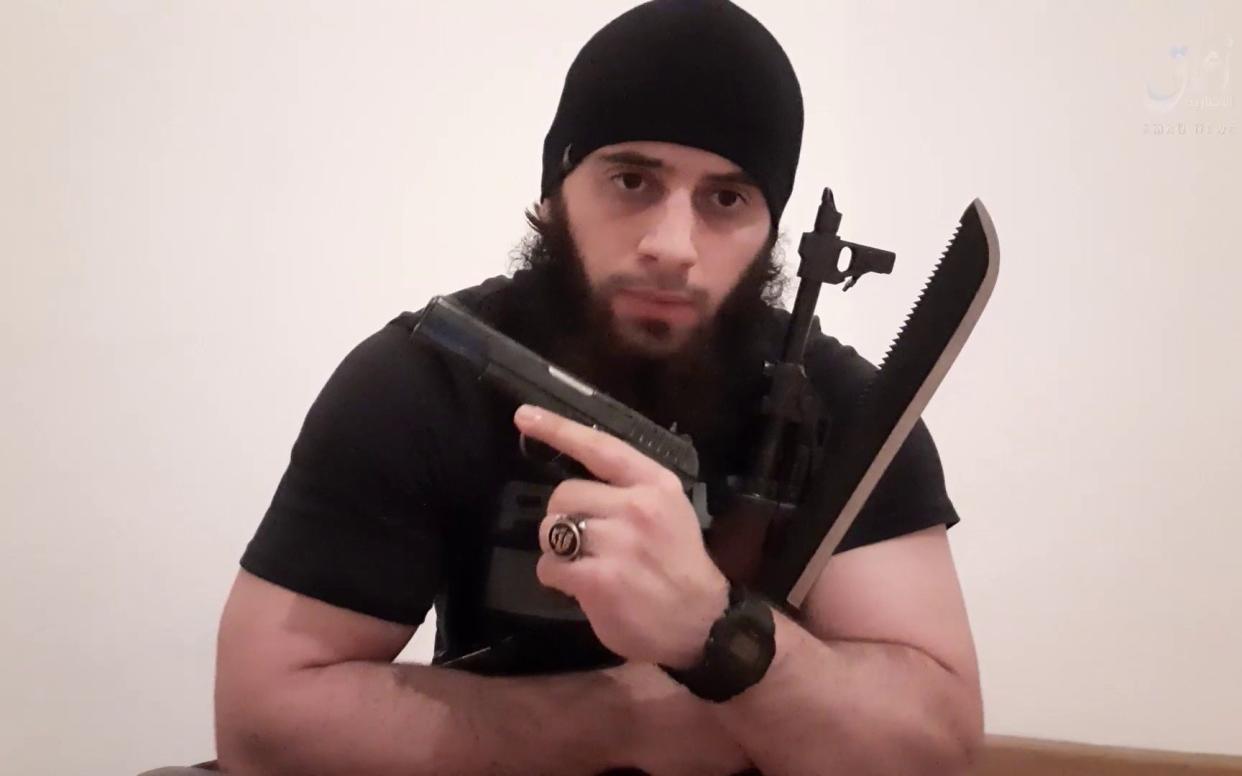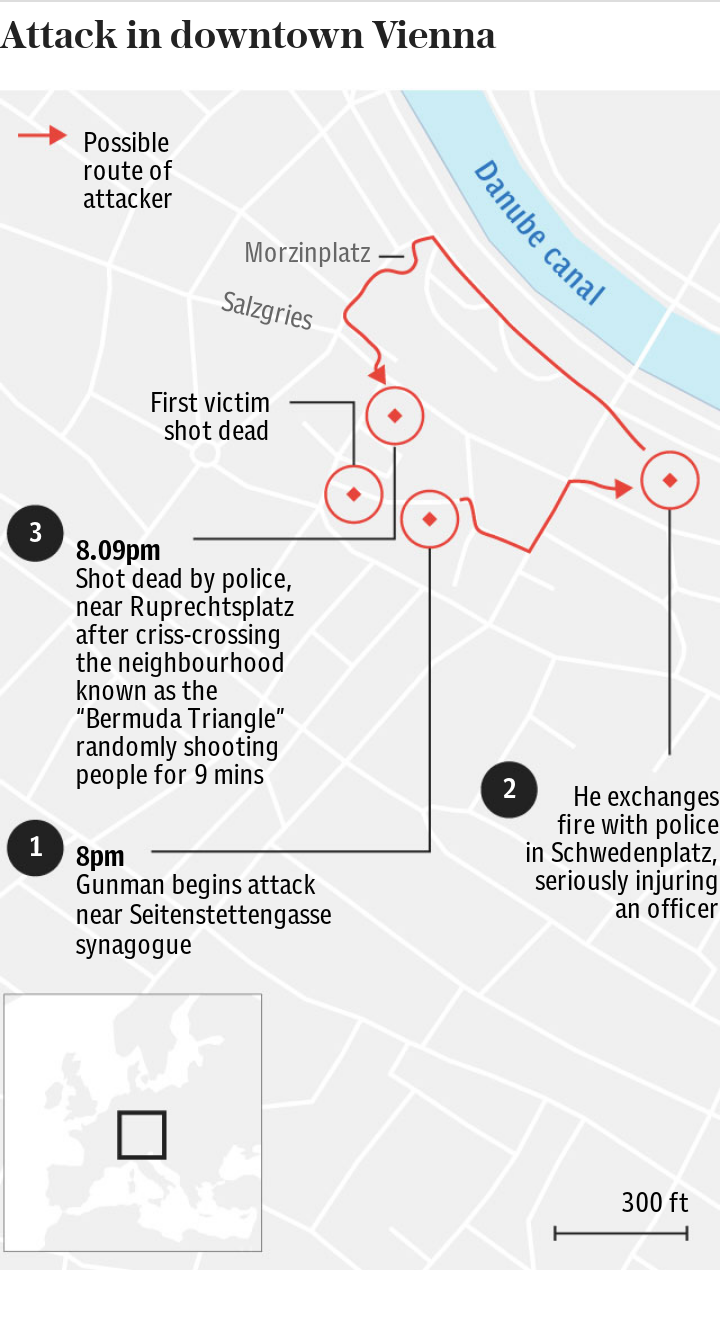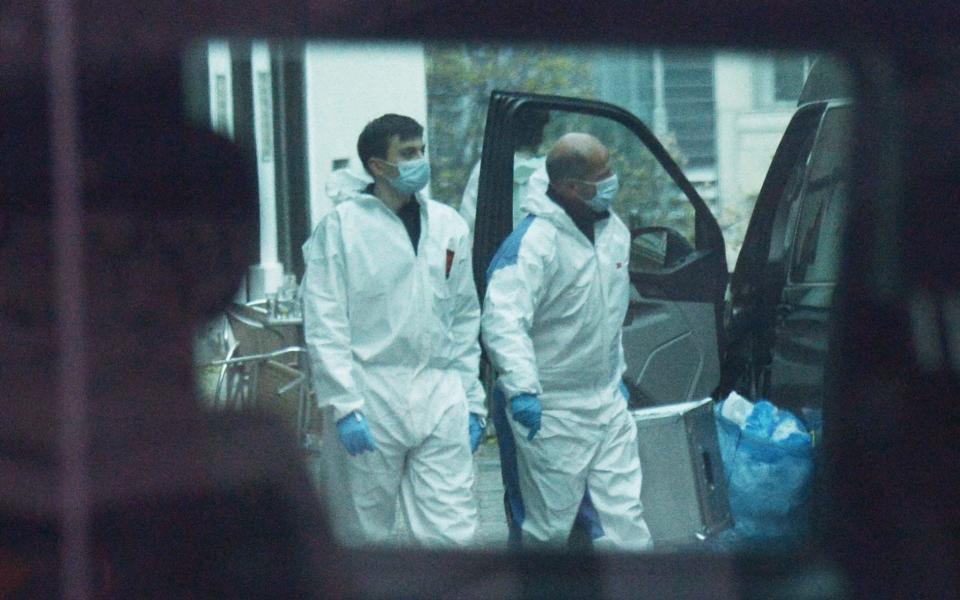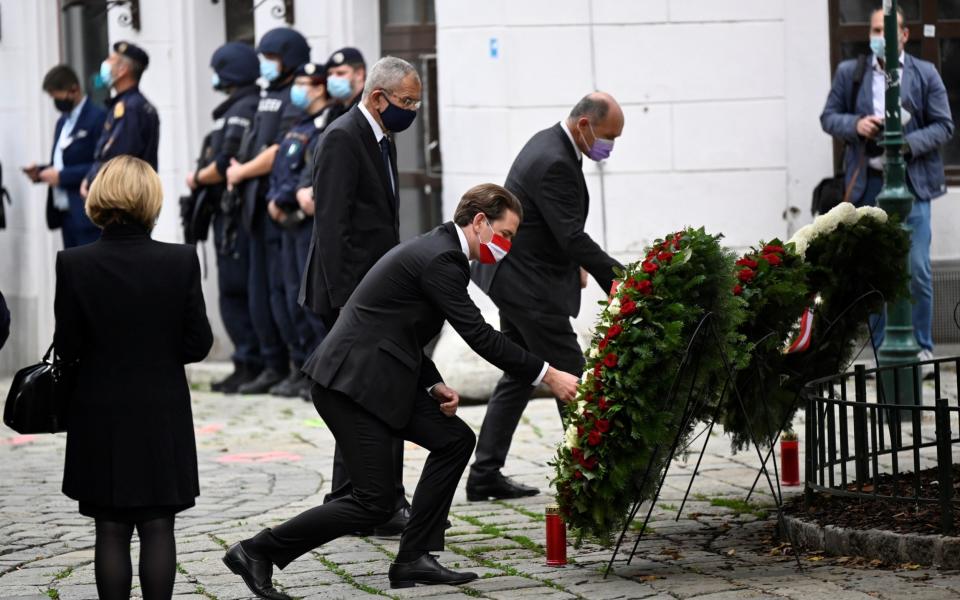Vienna terror attacker previously jailed for IS links

Authorities in Austria are facing questions over how a known extremist previously jailed for attempting to join Islamic State was free to carry out a terror attack in Vienna.
Isil on Tuesday claimed responsibility for Monday's attack in central Vienna in which four people were killed and 22 injured.
The lone gunman who opened fire in streets crowded with revellers was named by Austrian authorities as Kujtim Fejzulai, a 20-year-old Austrian citizen of Albanian heritage.
Fejzulai was jailed last year after he travelled to Turkey in an attempt to reach Syria and join Isil, but he was freed last December after convincing Austrian authorities he had been deradicalised.
On Monday he posted an image of himself brandishing a Kalashnikov, a handgun and a machete on his Instagram page and pledged allegiance to Isil.

At just after 8pm local time (7pm GMT), wearing a fake suicide vest, he opened fire in the street outside Vienna’s main synagogue. Footage from the synagogue’s security camera shows him gun down a young man standing outside the Kaktus Bar before returning to shoot him again with the handgun.
In the eight minutes that followed, he made his way through Vienna’s “Bermuda Triangle”, a popular nightlife area packed with bars.
It was an unusually warm night and the outdoor tables were packed with people enjoying a last night out before a new coronavirus lockdown came into effect.
Fejzulai opened fire on them indiscriminately, criss-crossing his way through the alleys. He exchanged fire with two police officers, injuring one of them seriously, and left another man in a pool of his own blood outside the Salzgries restaurant.
By the time police special forces reached the scene and shot him dead at 8.09pm, he had murdered an elderly couple, a waitress and a male passer by, and injured 22, seven of whom were still in serious condition on Tuesday.

As dawn broke over Vienna, police warned people to stay indoors, fearing the violence had been a series of coordinated attacks by multiple gunmen.
Fourteen people from Fejzulai’s circle were arrested, and 18 properties were searched around Vienna and the neighbouring city of St Pölten.
But as the day wore on it became clear that the attack itself was the work of a lone gunman.
Born in Vienna to immigrant parents from North Macedonia’s Muslim Albanian community, Fejzulai was well known to police.

He began to radicalise in his early teens, and was captured in an Isil safe house in Turkey in 2018 attempting to cross the border to Syria.
He had been monitored by Austrian intelligence for some time, as he had announced his intentions on social media.
At his trial he testified that he had got involved with “the wrong mosque” in 2016. By 2018, he was facing problems at home and at school and made plans with a friend to travel to Afghanistan and join Isil forces there.
The two men bought airline tickets but were unable to secure Afghan visas. Fejzulai travelled to Turkey alone, planning to join Isil in Syria, but was arrested by Turkish police before he could cross the border.

He was jailed for 22 months but released last December after serving only seven and a half.
“At the time I thought he was just a silly boy,” Nikolaus Rast, his defence lawyer, told the Telegraph. “We all made mistakes. The court did and I did too. This is unforgivable.”
“This case has exposed a faultline in the system,” Karl Nehammer, the Austrian interior minister, told a press conference. “A radicalised person was released early. He managed to deceive the judiciary’s deradicalisation programme and secure an early release.”
Fejzulai fooled the authorities so completely he was not even being monitored at the time of the attack, Mr Nehammer admitted.

After scouring footage of the attack, police were unable to find any evidence of other gunmen, but they believe he may have had help from accomplices.
Hours before the attack, Fejzulai posted an image on his Instagram account of the Arabic word baqiya spelled out in cartridge shells. The word is part of an Isil motto that translates as “enduring and expanding”.
He appears to have chosen his target carefully. Not only were the streets of the “Bermuda Triangle” packed with defenceless bar-goers, he started at the Stadttempel synagogue, which was previously targetted by Palestinian terror attacks in 1979 and 1981.
“The enemies, Islamist terror, wants to divide our society. We will not give any space to this hatred,” Sebastian Kurz, the Austrian chancellor, said.
“Our enemy are not members of a religious community, but terrorists. This is not a fight between Christians and Muslims or Austrians and migrants, but a fight between civilization and barbarism.”

